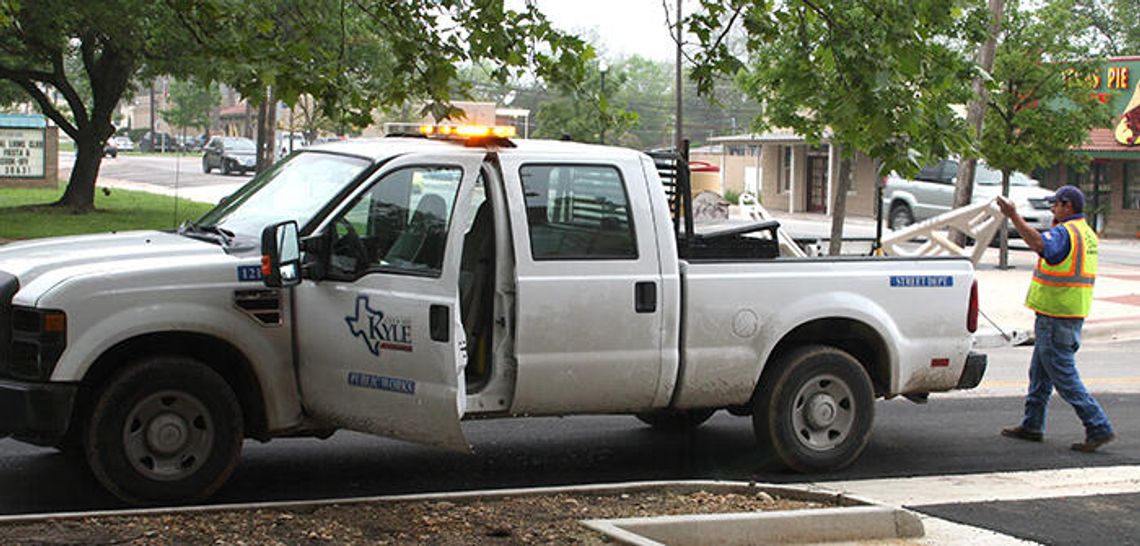In the hopes of reducing overall maintenance costs for its aging fleet of vehicles, Kyle city leaders Oct. 17 turned to a pilot program for help.
By a 6-0 vote, the Kyle City Council unanimously approved a contract with Enterprise Rental Car to reduce the overall maintenance costs of city vehicles. Council member Daphne Tenorio was absent during the vote.
Under the contract, Kyle would lease vehicles from Enterprise for all departments, including the police department. James Earp, Kyle assistant city manager, said the agreement would be implemented over a five-year period in which 20 percent of the city’s fleet would be phased out every year.
Kyle plans to use $733,400 that had been budgeted for new vehicles in Fiscal Year 2018 to lease cars for its pilot program.
“We want to ensure this kind of fleet program will benefit taxpayers in the long run,” Earp said. “I anticipate reviewing the numbers next summer during the 2018-19 budget.”
Kirby Watson, a representative with Enterprise, said approximately 43 percent of Kyle’s current fleet is over ten years of age, which increases the amount of fuel and time spent maintaining each vehicle.
“Basically a fleet of that age significantly increases your downtime,” said Watson. “Our list of shops around the area you are capable of going to will reduce your downtime and allow you to track and see your expenses in much more detail.”
Enterprise is a 60 year-old family owned company based in St. Louis, Missouri that owns and operates the largest fleet of vehicles in the world.
“If we help you all increase the vehicles you purchase every year and get out of vehicles quicker, then you’re going to be able to not only have a reduction in maintenance and reduction in fuel, but because you’re getting rid of the vehicles quicker, you’re going to have a higher resale on those vehicles,” Watson said.
Watson said instead of replacing vehicles every ten years as the city currently does, the goal would be to buy and sell vehicles in five-year cycles to offset vehicle depreciation and capitalize on newer vehicles with better gas mileage.
Watson guaranteed Enterprise would also be able to reduce current maintenance costs to $33.80 per vehicle per month in the city’s fleet, an apparent 79 percent decrease from the estimated $148.81 currently spent per vehicle per month.
She added Enterprise is able to buy vehicles “just like a government entity,” which allows them to reduce cost in acquisitions.
“When you hold a vehicle for a shorter period, fuel decreases over time and also newer vehicles have better fuel economy,” Watson said. “As vehicles age they have more maintenance, so we know exactly when to replace each vehicle, whether it’s a one ton service body or a half ton pickup or patrol cars; we can service that stuff.”
However, Travis Mitchell was skeptical that splitting the ten-year cycle would actually help reduce overall costs to the city. He said he “never noticed it to be true” to obtain two new vehicles for the price of one.
“You know, where you have one vehicle for ten years and you’re saying that you can get two vehicles and you can just replace it once and the cost within those ten years would be exactly the same,” Mitchell said. “Just basic market economics wants to push back on that.”
Mitchell added his concerns in terms of police vehicles, where mileage is not always a good factor when trying to determine when to sell these particular vehicles.
“We sell about a million vehicles a year so what we noticed is that as a vehicle ages, even if it has low mileage, once you get passed that ten year threshold, you’re not able to get a loan on that vehicle, so it reduces the pool of applicants or people who are able to acquire that vehicle ... If you get out of it at the ‘sweet spot’ where there are still warranties and other things available then vehicle is still worth a whole lot,” said Watson.










